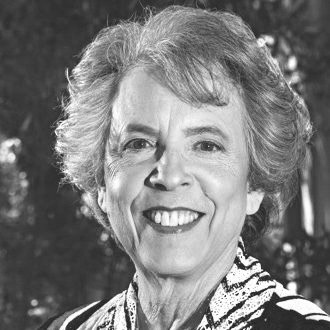In some prayer books, the opening verses of this week’s Torah portion serve as a preparation for prayer. The verses repeat over and over again that a perpetual fire shall continue to burn on the altar. Why the focus on the need to keep the fire burning? And what does it mean to us now, after the destruction of the Temple and the end of the sacrificial system, when there is no longer a literal fire?
The Sefat Emet writes: “In the soul of every Jew there lies a hidden point that is aflame with love of God, a fire that cannot be put out. … This is true of the human soul: There needs to burn in it a fiery longing to worship the Creator, and this longing has to be renewed each day. …”
But how do we renew it? Rabbi Samson Raphael Hirsch explains, using a verse from our portion: “ ‘And he shall take up the ashes … and carry the ashes outside.’ It is our daily duty to bring to our observance of the mitzvah a new zest, as if each time it was the first time. … The relics of the previous day’s work need clearing away, before the new day’s work can begin in a clean and renovated place.”
In other words, you have to clear away the ashes so as not to smother the fire. Clearing away the ashes, making room for new insights, new ways to experience prayer, is fraught with tension. On the one hand, if prayer is routine it is not able to awaken a fiery longing. On the other hand, if prayer is not familiar, it is difficult to pray in community.
This tension is captured in the classic description that so many of us have heard so many times: “I’m not religious; I’m spiritual.” Translation: I have my own connection to a sense of divinity; I don’t need any organized structures to facilitate the connection.
The word “religion” comes from the Latin religare, meaning “to bind.” Religion has rules, structures and obligations — to God, to a tradition, to other people and, indeed, to the larger world. Spirituality, on the other hand, is about an individual’s connection to divinity. Without religion, spirituality runs the risk of becoming a kind of narcissism. Without spirituality, religion risks smothering the fiery longing in the ashes of repetition, routine and fear of change.
What might it mean for us to “carry away the ashes”? For some Jews, it means bringing different kinds of spiritual practice into Jewish prayer.
A few weeks ago, we had the opportunity to experience Hebrew kirtan — a call-and-response chanting influenced by a Hindu prayer practice — in our Shabbat morning worship. Led by Rabbi Andrew Hahn, our New Emanuel Minyan experimented with Hebrew kirtan, and later that evening more than 140 people came together for a citywide kirtan.
For me, kirtan was a completely new experience, and not altogether comfortable. But there is no question that it was powerful, with the physical reverberations of the chanting lasting long after I returned home that evening.
And those 140 people — who were they? Jews connected to our synagogue and many other synagogues, and even more Jews not connected to any Jewish institution.
Samantha Orshan, a student in the joint program of Hebrew Union College-Jewish Institute of Religion’s School of Jewish Nonprofit Management and the Rabbinic School, studied Temple Emanuel for her thesis on spirituality in a mainstream synagogue. It didn’t surprise her that there were many congregants who called themselves “spiritual seekers,” looking and finding intense spiritual experiences at our congregation. What did surprise her were how many people said they were not spiritual but really valued the opportunities to bring more intensity into the prayer experience — through powerful participatory music, meditation and silence. She calls those Jews “hide and seekers,” and she challenges all of our synagogues to do even more to help them come out of hiding.
Maybe that’s what our Torah portion means by “clearing away the ashes.”
Laura Geller is senior rabbi of Temple Emanuel of Beverly Hills (tebh.org), a Reform congregation.






















 More news and opinions than at a Shabbat dinner, right in your inbox.
More news and opinions than at a Shabbat dinner, right in your inbox.